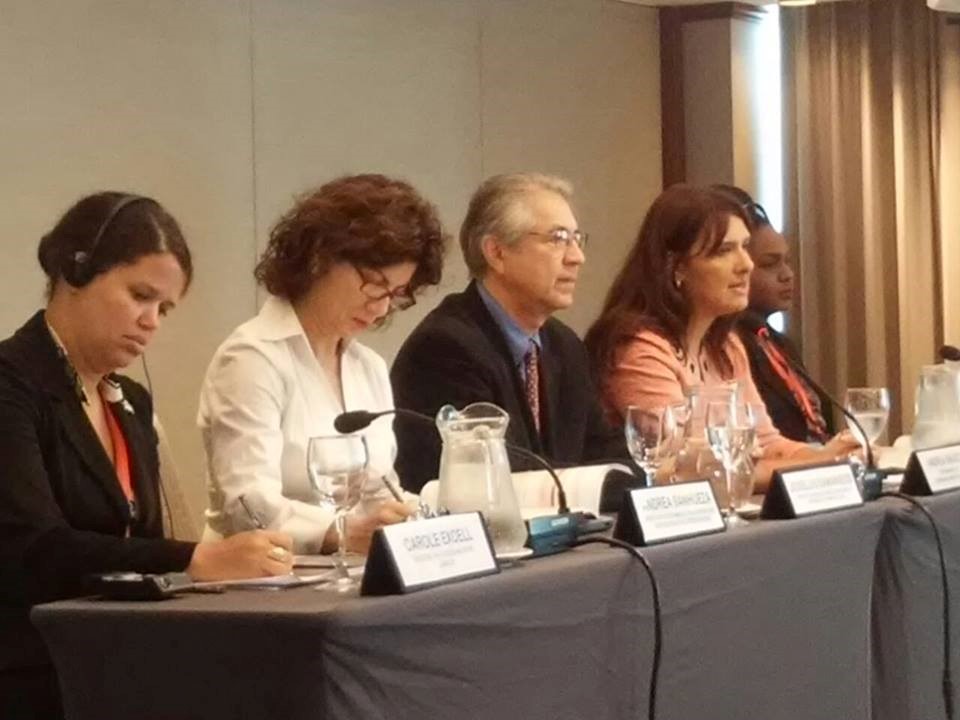Topics
By Carole Excell (Posted: April 8, 2016)
Members of the public participating in the 3rd Meeting of the Negotiating Committee on the Regional Agreement on Access to Information, Participation and Justice in Environmental Matters in Latin America and the Caribbean in Montevideo, Uruguay received a blow during the penultimate day of the negotiations. The negotiations at its very core promotes public participation. To date, the process has not only encouraged the active participation of the public in shaping this regional instrument but persons outside of the Latin American and Caribbean region have been eagerly following and participating in the meetings. However, the 21 signatory countries in approving the Modalities for Public Participation in the negotiation process, agreed in paragraph 5 of the document that signatory countries can object to the participation of the public from other regions on a case-by-case basis. In order to maintain the inclusive and progressive nature of the process, the public suggested, the following amendment to the text “The public from other regions may participate in face-to-face and virtual meetings based on the criteria prescribed by ECLAC”. This proposal, which unfortunately did not receive support from any country is similar to other international processes (for example the United Nations Environment Programme http://www.unep.org/civil-society/UNEAUNEPAccreditation/tabi…) which give accreditation privileges to the Technical Secretariat. Dr. Noriko Okubo, a Professor at Osaka University in Japan has been attending meetings for the process since 2014 because she hopes that a similar process can be modelled in the Asian region. Regarding the decision she said, “The process provides a good opportunity to share good Main Elected Representatives of the Public (L-R): Danielle Andrade-Goffe (Jamaica) and Andrea Sanhueza (Chile) at 3rd Negotiating Meeting in Uruguay. practices. Compared to the Aarhus Convention (Access Rights on Environmental Matters for the European Region), there is no such screening process and she is free to attend and participate in their meetings without a feeling of restraint and uncertainty”. Dr. Okubo also said, “I’m worried that the new screening process for the LAC P10 meetings might be too drawn out making it more difficult and expensive to participate”. Principle 10 of the Rio Declaration on Environment and Development endeavours to ensure that every person has access to information, participates in decision-making and can access justice in environmental matters, in order to guarantee the right to a healthy and sustainable environment for present and future generations. All the relevant documents and information on this process as well as a link to view the live stream of the negotiations which culminates on April 8, 2016 can be accessed at http://negociacionp10.cepal.org/3/en. -end- For information on civil society’s role in the regional process please contact: Danielle Andrade Goffe (Jamaica) Main Elected Representative of the Pubic (LAC P10)dandrade.law@gmail.com Andrea Sanhueza (Chile) Main Elected Representative of the Pubic (LAC P10) andreasanhuezae@gmail.com
